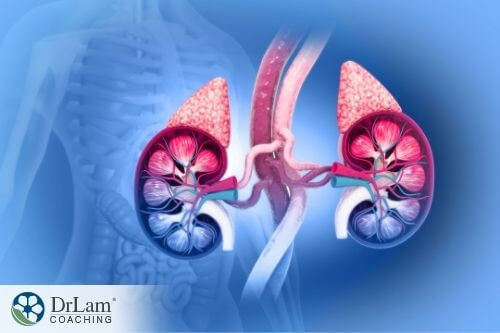 The world is edging its way towards ever-increasing complexity. With technological advancement comes the need to learn how to use new apps and gadgets just to keep up with everyone. Or even just to keep your job. Competition at work and in academia has been intensifying, and burnouts are becoming the norm. Sadly, the public health sector and most businesses have yet to take mental health and psychological resilience seriously enough.
The world is edging its way towards ever-increasing complexity. With technological advancement comes the need to learn how to use new apps and gadgets just to keep up with everyone. Or even just to keep your job. Competition at work and in academia has been intensifying, and burnouts are becoming the norm. Sadly, the public health sector and most businesses have yet to take mental health and psychological resilience seriously enough.
And this was the case even before the COVID-19 crisis. Since the reality of the pandemic hit, we've had to find ways to deal with that complexity within the context of huge constraints. Quarantines, social distancing, lockdowns, travel restrictions, remote work, and reduced healthcare access created a perfect storm of stress and a lack of support for the entire population.
And many mental health experts now believe that the one good thing that can come out of this is that governments and businesses will put more emphasis on cultivating a preventive or early intervention approach to burnouts and the accumulation of stress for citizens and workers.
This will reduce public health spending and business expenses from high turnovers and low productivity. It will also affect society as a whole. Because a society that is made up of individuals with more psychological resilience has improved overall wellbeing. It's a place where more of us have the energy to produce, innovate, and achieve.
But until these big changes are in place, it is up to you to prioritize your own mental health and psychological resilience during these challenging times. Pandemic or not, the skills and practices outlined in this article will come in handy in almost any situation.
Psychological resilience is a kind of mental toughness that allows you to recover more quickly from a setback or stressor. And, since life is full of challenges, your main task here is to learn how to handle them rather than how to hide from them.
There's a common misconception that resilience is something people are born with and that you just have it, or you don't. This misconception comes from a culture where overworking and sleep deprivation are worn as badges of honor. What we don't hear enough about is just how many people are actually suffering - mentally, physically, and relationally - from this dynamic. So it's easy to think that you are just too sensitive and others are somehow more resilient.
Psychological resilience is not about pushing yourself till you drop. It’s also not about doing everything alone, silently suffering, or never asking for help. It is actually a set of skills you can develop consciously and increase with practice. And its main goal is for you to avoid the accumulation of stress rather than avoiding stress altogether. The build-up of stress is what leads to burnout and defeat. And no one, no matter how strong they believe themselves to be, can withstand a build-up of stress forever.
There are, however, certain factors that play a role in how some people developed resilience as children when others did not. And knowing about them can help you gauge where you stand, as well as give you some ideas of how to fortify yourself.
 There are certain protective factors and risk factors that have been identified that can either help or harm children’s development of resiliency. Let’s first begin with protective factors:
There are certain protective factors and risk factors that have been identified that can either help or harm children’s development of resiliency. Let’s first begin with protective factors:
As you can guess, risk factors include lacking any of the above protective factors. They also include being brought up in poverty or in a disadvantaged neighborhood, facing discrimination, having reduced access to social resources such as healthcare and education, experiencing abuse and violence, the loss of important caretakers, being isolated, and drug and alcohol use.
The good news is that you can develop many of these protective factors later in life in order to build psychological resilience. You can become someone who, when facing stress, not only adapts to and bounces back from it, but even uses it to propel forward.
But in order to avoid a serious stress build-up, you need to be able to identify the different types of stressors in your life.
We will be looking at physical and psychological stressors, both of which have been exacerbated by the pandemic and both are of equal importance. Also, both affect each other.
The mind-body connection is real. And improving your mental well-being will positively affect your physical health, and improving your physical health will improve your mental health.
Take a look at the list below of some of the most common stressors. As the first step in building psychological resilience is identifying the different kinds of stress you’re exposed to, jot down which of the following stressors you are experiencing consistently so that you can make adjustments accordingly. It would also be very helpful to share your list with your healthcare professional.
 The Standard American Diet is high in saturated fat and low in fiber. It’s also increasingly processed and full of refined sugars and carbs. People following this diet are habitually nutrient deficient and suffering from systemic inflammation, both of which are huge stressors in their own right.
The Standard American Diet is high in saturated fat and low in fiber. It’s also increasingly processed and full of refined sugars and carbs. People following this diet are habitually nutrient deficient and suffering from systemic inflammation, both of which are huge stressors in their own right.
Chronic inflammation is one of the root causes of chronic conditions, both physical and neuropsychiatric. Yet, it is rarely looked at when you go to your doctor to complain of burnout or pain. Thankfully, the role inflammation plays in depression and other mental health issues is starting to enter mainstream dialogue, as is how diet is one of the most efficient and sustainable ways to deal with it.
Even if your diet is relatively healthy, you may be eating foods that you’re sensitive to without knowing it. For example, gluten sensitivity may manifest as brain fog, anxiety, depression, and other neuropsychiatric issues - with little to no digestive issues. So you then don’t consider it to be a food issue and don’t treat it as such. And it keeps getting worse and putting a lot of stress on your body.
If you suspect this might be an issue for you, there are quick tests you can do to discover if you have allergies. However, the best test is an elimination diet, where you stop eating the most common inflammatory foods for a time and see how you feel as you reintroduce each of them back into your diet. If something triggers symptoms, then you’re likely sensitive to it.
This is a huge one when it comes to burnout. In fact, it can bring about burnout single-handedly even if all other factors are under control.
There has been a long-standing trend in the US, and many other countries, that has people overworking - and undersleeping - in order to prove themselves. The stigma says that if you’re not killing yourself trying to reach perfection in your role, whether at work or at home, then you’re lazy and unambitious. This trend is costing people, companies, and the government more than we can imagine, and it has only been worsened by the pandemic.
All relationships have challenges. In healthy relationships, the parties are dedicated to working to overcome them together. But toxic relationships are detrimental to mental and physical health. They can chip away at your self-esteem and decrease your motivation for self-care. And they can be present anywhere, including at work, at school, at home, and in your circle of friends and acquaintances.
You may not suffer from toxic relationships, but if you don’t have any friends or loved ones around, you might end up with just as much stress. There is a silent epidemic of loneliness overtaking the world, even as we get more digitally connected. And, as you’ve likely seen, the COVID-19 has multiplied its effects.
 It's hard to overstate the importance of stepping out of the overworking mentality. It makes sense to sometimes push yourself when you have a deadline at work or an exam at school. But this should be the exception, not the rule. If you are killing yourself just to stay competitive, you will eventually burn out and be forced out of the competition completely. Finding a sustainable and healthy way to do your job is the only way to survive and thrive long-term in your career.
It's hard to overstate the importance of stepping out of the overworking mentality. It makes sense to sometimes push yourself when you have a deadline at work or an exam at school. But this should be the exception, not the rule. If you are killing yourself just to stay competitive, you will eventually burn out and be forced out of the competition completely. Finding a sustainable and healthy way to do your job is the only way to survive and thrive long-term in your career.
If your work requires you to be in front of the computer all day long, you may inadvertently be leading a sedentary lifestyle. Our bodies need to move throughout the day to be healthy. And exercise is also good for mental health and psychological resiliency.
However, if your adrenals are weak or you’re recovering from a health issue, then you’ll have to be careful with physical exertion, as it can backfire. We’ll discuss this in more detail in the section below about exercise.
This can be anything from air and water pollution, to chemicals in home and beauty products, to artificial flavors and preservatives in food, to herbicides and pesticides, to mold toxicity, to electromagnetic radiation.
Toxins make your Detoxification Circuit, which is part of your body’s global stress response, work hard. And if you’re consistently exposed to them, they can clog up that circuit and accumulate in your system. They then raise your body’s toxicity and inflammation levels.
Some medications can cause side effects that then act as stressors. For example, frequent use of NSAIDs (non-steroidal anti-inflammatory drugs) and antibiotics can lead to dysbiosis, which is the imbalance of the gut flora. Dysbiosis is a major cause of chronic inflammation as well as issues with the gastrointestinal tract.
If you have a chronic condition that you’re unable to manage properly, its effects on your health will put a lot of pressure on your stress response. Some people may also have subclinical conditions that have yet to be diagnosed but are creating health problems all the same. This is true for both chronic physical conditions and chronic mental health conditions.
Exposure to certain substances, like xenoestrogens, can disrupt your hormone balance. Also, certain periods of hormonal changes, such as pregnancy or menopause, can do that too. If your hormones are out of balance for prolonged periods of time, that will affect every system in your body.
 This can happen due to metabolic issues, such as unmanaged diabetes, or because of too much sugar intake. When you eat a lot of sugar, your pancreas has to release a lot of insulin. Too much insulin released too fast will then cause your blood sugar levels to crash, prompting you to crave even more sugar. This cycle of spikes and crashes is one of the most stressful things your body can deal with.
This can happen due to metabolic issues, such as unmanaged diabetes, or because of too much sugar intake. When you eat a lot of sugar, your pancreas has to release a lot of insulin. Too much insulin released too fast will then cause your blood sugar levels to crash, prompting you to crave even more sugar. This cycle of spikes and crashes is one of the most stressful things your body can deal with.
With smoking, even the smallest amount is harmful to your health. And that includes being exposed to secondhand smoke. Some people may benefit from drinking alcohol occasionally if they’re already healthy. But if your health is not at its best or you are suffering from mental health issues, then it may be better to avoid alcohol for some time.
You may have compromised immunity or a stealth infection that is difficult to get rid of. Either way, the presence of pathogens in your body that keeps triggering your immune system can cause a lot of stress. They require a huge effort from your body, and at the same time, your body doesn’t get the chance to rest and recover afterward.
If you have adrenal fatigue, you’re more at risk of frequent colds and flus. Also, if you’re taking immunosuppressants, you have a higher risk as well.
Financial pressure can come from a variety of sources. You may have lost your job during the pandemic, or you may be struggling with debt, or you may just not have a grip on your spending and budget. Whatever the case, being short on money can wreak havoc on your health, your quality of life, and your emotional wellbeing.
The list can go on. Stressors can come from anywhere. You may have lost a loved one recently, or are not sure what career path to take, or are facing retirement and an empty nest. Whatever the situation, understanding the stressors in your life and how your body responds to stress can help you with managing your stress and in building a more resilient mind-body connection.
Although when we talk about stress we automatically think of how it affects mental health, there are real physiological consequences as well. Your body has a built-in stress response – the NeuroEndoMetabolic (NEM) Stress Response. This NEM is a network of organs and systems that work together to fight stress, and they’re organized into six circuits: the Hormone, the Bioenergetics, the Neuroaffect, the Cardionomic, the Inflammation, and the Detoxification circuits.
Usually, the NEM’s first responder is your hypothalamic-pituitary-adrenal (HPA) axis. This is a kind of hormone cascade that is regulated by the hypothalamus and pituitary gland in the brain. When you face a stressor, the hypothalamus sends corticotropin-releasing hormone (CRH) to your pituitary gland. CRH tells the pituitary to release adrenocorticotropic hormone (ACTH), which stimulates your adrenal glands.
 Your adrenals release over 50 different kinds of hormones, and some of them help your body deal with stress. The main anti-stress hormone is cortisol, which helps create your “fight or flight” response. Your breathing and heart rate increase in order to pump oxygenated blood to your muscles. Blood glucose levels increase to provide more energy to your muscles as well. Your mind becomes more alert. And systems that are not essential to the response are downregulated so that more energy is available for you to face the stressor.
Your adrenals release over 50 different kinds of hormones, and some of them help your body deal with stress. The main anti-stress hormone is cortisol, which helps create your “fight or flight” response. Your breathing and heart rate increase in order to pump oxygenated blood to your muscles. Blood glucose levels increase to provide more energy to your muscles as well. Your mind becomes more alert. And systems that are not essential to the response are downregulated so that more energy is available for you to face the stressor.
Once the stressor has been neutralized, excess cortisol becomes the signal to your hypothalamus to interrupt the HPA axis cascade. It stops sending CRH to the pituitary gland, which in turn stops secreting ACTH.
Your adrenals, and by default the HPA axis, are part of your Hormone Circuit, along with your thyroid and reproductive organs. Each component of each NEM circuit upregulates or downregulates depending on what is required.
Dysregulation of any of these circuits can cause symptoms of stress and lead to Adrenal Fatigue Syndrome (AFS). Symptoms of AFS include fatigue, weight gain, sleep disturbances, brain fog, anxiety, mild depression, hair loss, dry skin, loss of libido, PMS, infertility, hypoglycemia, food and drug sensitivities, lowered immunity, salt and sugar cravings, and heart palpitations, among others.
At first glance, it might seem that these physiological reactions have nothing to do with psychological resilience, but the truth is that the link is very strong.
When you are mentally resilient, adversity is less likely to dysregulate your NEM. You are more able to adapt and resolve stress before it takes too heavy of a toll. Some of the techniques we’ll list below help shift your ANS from activating your sympathetic nervous system, which is what triggers your “fight or flight” response, to activating your parasympathetic nervous system, which is the one that helps you rest and relax.
 At the same time, if your NEM is healthy and your adrenals are strong, they provide the physical stamina you need to deal with the stress you need to deal with without it completely draining your mental energy and wellbeing.
At the same time, if your NEM is healthy and your adrenals are strong, they provide the physical stamina you need to deal with the stress you need to deal with without it completely draining your mental energy and wellbeing.
Because of this two-way link, when a patient comes to us under a lot of stress, we like to approach their situation holistically. This means that we take into account their physical, mental, relational, and environmental circumstances and create a plan to improve all of these areas step by step. The following are our suggested 10 steps to take towards that goal.
As noted above, sleep is foundational. It is a cornerstone of both physical and mental health. And no matter how much you try to improve all other areas of your life, if your sleep is not good, you will not thrive. To improve your sleep, you should:
Most of us can face great adversity if we have people who can support us and empathize with us. As we mentioned, isolation and loneliness are huge risk factors, not only for reduced resilience but many other mental and physical health problems. So take a proactive approach to nurture healthy relationships and let go of unhealthy ones.
If you’re not sure how to start, you can begin by joining a support group. You can also start telling people close to you how you’re doing and when you need help. And when things are going well, make sure you do the same for them. Trust and reciprocation are key components of satisfying relationships, and they take time to build. Start now.
The adrenal fatigue diet is the other cornerstone of adrenal fatigue recovery, and we recommend it to anyone who’s under a lot of stress. It is a nutrient-dense, whole-foods, and anti-inflammatory diet that will strengthen your adrenals and balance your microbiome. It is easy to follow if you make the changes incrementally and if you get guidance along the way.
 It’s not just about what you eat but also about when. Timing your meals so that your blood sugar levels are stable throughout the day is important. Unstable blood sugar levels can cause anxiety and make it difficult to deal with psychological stress, and it’s not something many mental health professionals take into account.
It’s not just about what you eat but also about when. Timing your meals so that your blood sugar levels are stable throughout the day is important. Unstable blood sugar levels can cause anxiety and make it difficult to deal with psychological stress, and it’s not something many mental health professionals take into account.
If you’d like to learn more about how diet affects mental health, you can get in touch with us to talk to one of our coaches about the most suitable diet for your situation.
You’ve watched movies and read books about people overcoming extreme adversity. And a common thread is that those who made it did so because they felt a strong sense of purpose. One such example is documented in the book “Man’s Search for Meaning” by the Austrian psychiatrist and holocaust survivor Viktor Frankl. In fact, reading stories of those who faced great adversity and exemplified psychological resilience can help you find your own.
If you’re not sure where your sense of purpose can come from, try different things. Many have found that helping those in need, being part of an important social or environmental cause, or being proactive within a community are very fulfilling activities.
Mindfulness is about being present in the moment. Most forms of psychological stress have to do with negatively thinking about the past or future. You’re stressed because something bad happened or you believe something bad is about to happen. And although we don’t want to negate the traumas and challenges you may have faced and may still be facing, taking a time-out and being present can help you deal with these issues better.
Mindfulness practice can involve meditation, breath-work, yoga, walking in nature, or journaling. The important thing is that you allow yourself to be present in the here and now, and whenever your mind wanders, you practice bringing it back to where you are now.
Exercise is an excellent tool for building and maintaining physical and mental health. It releases endorphins, gets your circulation going, and helps you get rid of toxins via sweat. It can even be a kind of mindfulness practice itself. Group classes or group sports can also create the opportunity for connecting with others.
However, there is an important caveat here. If you have AFS or are physically unwell, you should stick to very gentle forms of exercise at first. Overly intense exercise can be a stressor in itself. Adrenal breathing and adrenal yoga exercises are gentle enough. They won't overwork your adrenals and lead to an adrenal crash. Then, when you feel strong again, you can increase the intensity of your workouts gradually.
 When you’re facing adversity, the last thing you might want to do is think of things to be grateful for. But it is also one of the best ways to feel better. You can start small. Like being grateful for the air you breathe or the parts of your body that are still working. Then, as you get better at this practice, you’ll find yourself feeling grateful for aspects of the challenge you’re facing. It may be helping you grow, learn, and connect with people more.
When you’re facing adversity, the last thing you might want to do is think of things to be grateful for. But it is also one of the best ways to feel better. You can start small. Like being grateful for the air you breathe or the parts of your body that are still working. Then, as you get better at this practice, you’ll find yourself feeling grateful for aspects of the challenge you’re facing. It may be helping you grow, learn, and connect with people more.
You can do your gratitude practice using pen and paper or just in your mind. The most important aspect of it is to do it with feeling, rather than as a purely intellectual exercise. Feeling gratitude is the transformative act.
These days, there are many resources to help you learn how to regulate your emotions by yourself. We’ve already listed mindfulness and gratitude. But there are other ways as well. For example, there are apps that can help you conduct cognitive behavioral therapy (CBT) on yourself. Do some research to see what sounds most suitable for you.
Managing your stress and regulating your emotions is one of the most useful life skills you can develop. Not only does it reduce your stress, but it will allow you to be more in control of your reactions so that you don’t regret them later. This will go a long way in your relationships and at work. So take your time and be patient. And don’t feel bad if you slip up once in a while; it is a process.
There are many different kinds of supplements out there that could be useful. First of all, if you have any nutritional deficiencies, you can take supplements to deal with those. Secondly, some conditions may require therapeutic dosages, which give you a stronger boost. For example, if you have AFS, you might want to take bigger doses of vitamin C to replenish your adrenals’ lost stores and strengthen your immunity.
A third kind of supplement can help with stress directly: adaptogens. Adaptogens are herbs and supplements that help you adapt to stress more effectively. Some of the more popular ones include ashwagandha and Rhodiola.
However, do note that it’s vital to enlist the help of a healthcare professional when coming up with a supplements protocol. What works for one person can backfire for another, so even if you read about the benefits of this or that online, it’s still possible that you will experience adverse effects. This is especially true if you have AFS, as you are more prone to paradoxical reactions and even adrenal crashes.
This can be in the form of therapy, such as CBT or psychotherapy. Or it can be a nutritional and wellness coach that helps you recover from AFS and NEM dysregulation. Professionals have gone through a lot of training and gained a lot of experience. They can help you get over some of the humps in recovery. They can also see your blind spots and then direct you away from them.
The important thing is that you have some guidance and support, especially in the beginning. This alone will give you some relief. Eventually, you may find yourself able to take control of your own health and wellbeing. Remember, psychological resilience is not about doing it alone. It’s about utilizing whatever resources, skills, and tools are available to you when you need them. And by doing so, you’re more able to be there for others when they’re facing adversity as well.
Psychological resilience is a skill you can develop. And although there are certain risk factors that may have affected your ability to develop it as a child, there are many things you can do in adulthood that will help. We've outlined 10 of the most useful in this article. They include things like mindfulness, diet, exercise, sleep, supplements, connection, and therapy.
But don't try to implement everything all at once or all by yourself. This is especially the case if you are suffering from AFS, as you may inadvertently make it worse.
If you have been facing hardship or burnout due to the pandemic or for other reasons, or you believe you are suffering from AFS and NEM dysregulation, know there is help. Our coaches have helped countless people in similar situations and know that the only way to create sustainable wellbeing is by addressing the problems at their root. They will help you create an individualized recovery plan that helps you build your psychological resilience no matter what risk factors you have. You can talk to our team at +1 (626) 571-1234 for a free consultation, or click here.
Psychological resilience is like a muscle. If you train it, it will get stronger. There are dozens of ways to develop it, and the best approach is to do so with a holistic mind-body approach. In this article, we’ll outline 10 of the most impactful steps you can take.
